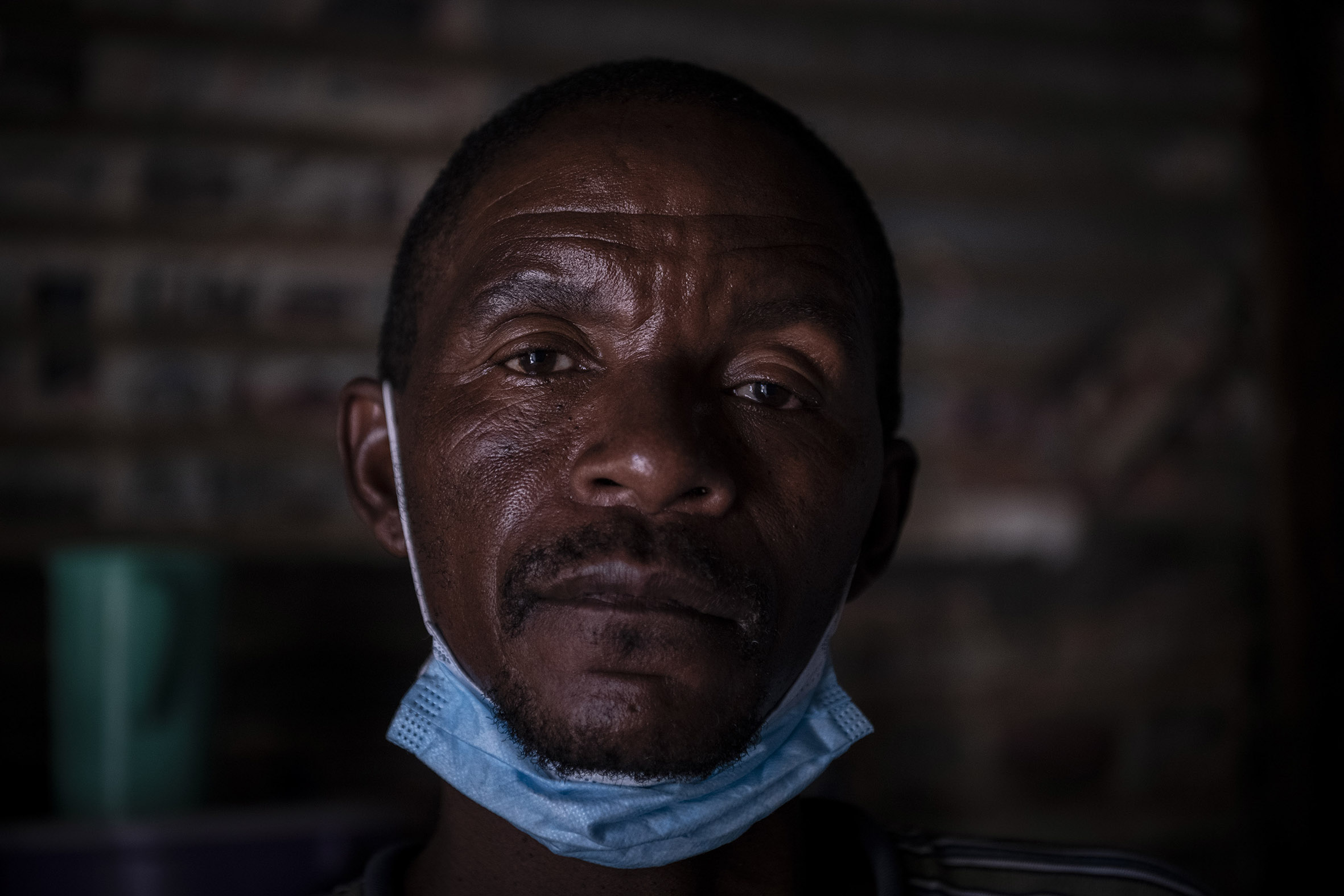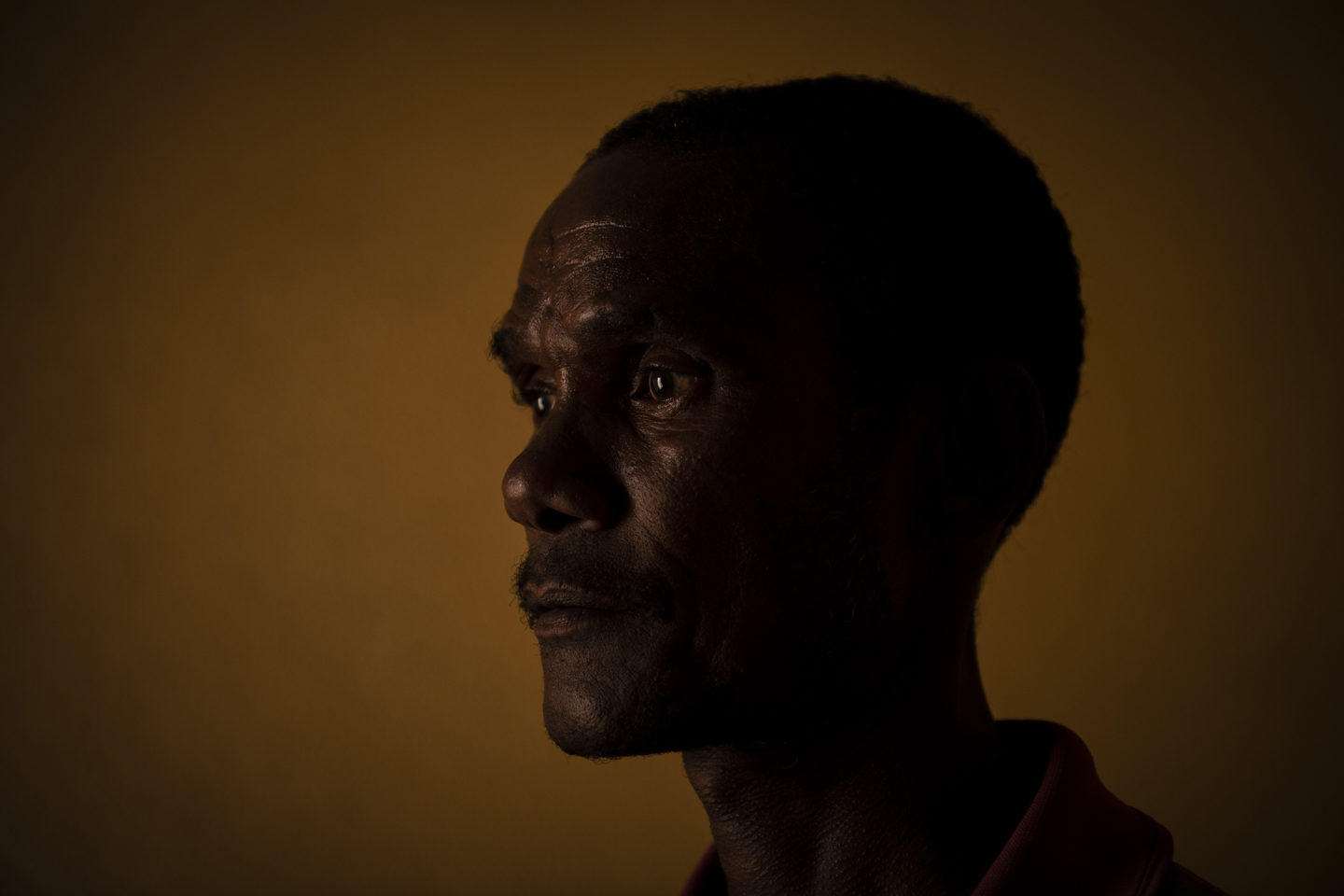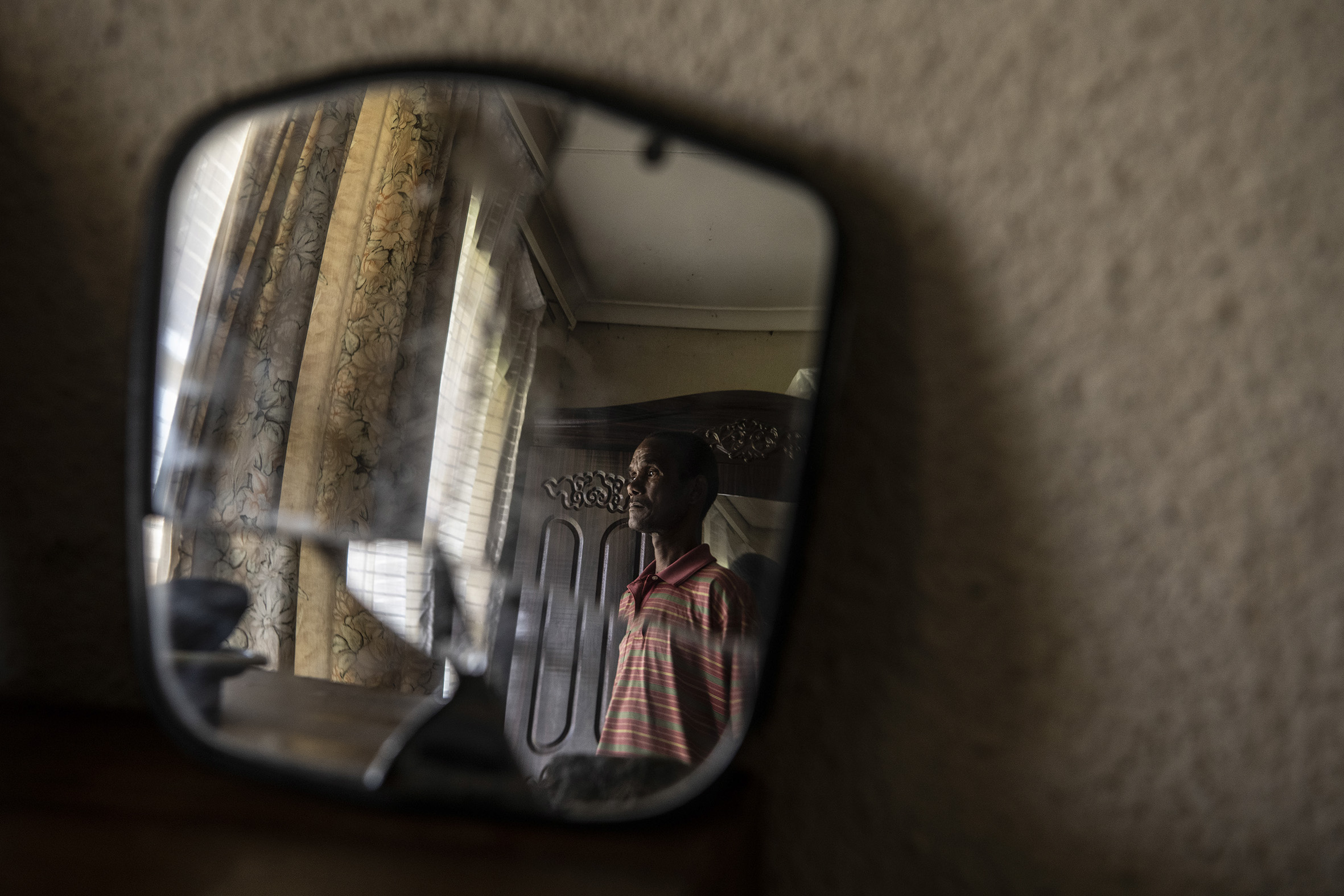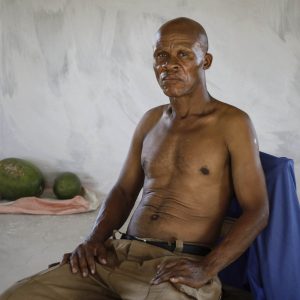Mineworkers who have paid the price
Paralysis, tuberculosis and silicosis are just some of the tragedies that befall miners in South Africa, but mine owners have been reluctant, at best, to do the right thing.
Author:
28 March 2022

Zachariah Mokhothu, 49, was excited when he got his first job in mining. He is the eldest son and was the only breadwinner. He never imagined that working underground would change his life. As he gets into the car to head home to Kutlwanong township outside Odendaalsrus in the Free State, pieces of his wheelchair keep falling off.
“Is there anyone who used to work in mining who has a scrap of a wheelchair like this?” he asks casually as he sits in the car.
According to Statistics South Africa, the mining industry generated R527.5 billion in sales in 2019, with 16 commodities ranked in the top 10 internationally. South Africa is currently ranked fifth in the world for mining’s contribution to GDP and in the top three globally in terms of production.

While the industry continues to thrive, there are plenty of men like Mokhothu who pay for its success. During his 15-year career in mining, he got injured and contracted tuberculosis (TB) before his paralysis.
Mokhothu says he was pushing a wheelbarrow at work when he realised that his left arm had gone numb and he couldn’t move it. He went to the site manager and asked for his medical aid documents so he could go to the doctor. He was told his documents were missing and that he possibly didn’t sign for medical aid. “It is impossible that I didn’t sign for my medical aid when I know that anything can happen underground. Mining is dangerous,” he says.
Mokhothu’s relationship with his employer, Redpath Mining, deteriorated from the moment he walked to the hospital after being denied a company car to take him. He was alone there and a few days after a stroke had caused the numbness in his arm, the rest of his body followed.
Trickery and denial
His mother Regina Mokhothu says it was difficult when he couldn’t move at all. “We got no support from the mine, not even a check-up. Luckily Zacharia still had medical aid from his former employer, so he went to a couple of physiotherapy sessions before it expired.
“My heart breaks when I see his situation and how the mine has treated him. He was the only breadwinner when he was working. The family didn’t want for anything. I’ve become too old to work. I used to be a domestic worker in the city.”
Related article:
A Redpath mining representative said Mokhothu wasn’t injured on duty and that he wasn’t an employee yet when he had the stroke. “If he was injured on duty, the process would be to complete forms, send them to [insurance company] Rand Mutual, observe how severe the situation is and pay accordingly. Rand Mutual makes that decision.”
Mokhothu says he was tricked into signing a voluntary termination agreement and that he has a document to this effect. He also has a letter from Rand Mutual notifying him about his payments towards medical aid.
Mining fatalities
More than 11 000 mineworkers died in South Africa between 1984 and 2005, according to the Department of Mineral Resources and Energy. The death toll from mining accidents was about 270 in 2003 and the department, Minerals Council South Africa and other industry stakeholders reached an agreement to reduce mining fatalities by 20% a year. There was an improvement from 2010 onwards, but fatalities have increased again in recent years.
Those who survive mining accidents, such as Thabani Tsokodibane, 56, tell of the lack of care and blatant disregard they experience at the hands of managers and employers when they are injured or fall ill. Tsokodibane had been working in the mining industry for more than a decade when he contracted TB at Harmony Gold’s Bambanani mine in Welkom in 2010.
He went to the clinic and was told he had drug-resistant TB. “I took my medicine every day. I was at the clinic daily for almost a year. At work, nobody said much to me or called to check. I thought everything was still in order. But when I went back to work, they said, ‘We have put somebody else in your shift, go home.’”

Disappointed and worried about providing for his wife and seven children, he applied for a job at another mine. But the human resources (HR) department told him in the final stages of the process that the mine could not employ him because his health tests had shown he was not fit to work underground. The TB had affected his lungs, leaving him with chronic breathing problems.
“My body has never been the same. I can build and do plumbing, which I used to do for extra income, but now I work slower because I just get weak,” says Tsokodibane. He says it is more difficult to breathe and he comes down with flu-like symptoms, including coughing every five minutes, that sometimes last for weeks. “I go to the clinic, get cough mixture and that’s all.”
‘Some sort of justice’
Mokhothu and Tsokodibane hope to receive compensation from their respective former employers through the Tshiamiso Trust. They are hopeful that, after a long wait, they will get some sort of justice for the effects of mining on their bodies and would like more than monetary compensation.
Mokhothu says he is most frustrated with how his employer treated him. “I was tricked. After years, I got a letter from [medical insurance company] Discovery about the payments that were deducted from my salary, which means they hid my medical aid from me. I think it’s because they wanted to deny that I had the stroke at work. Mines are very good at denying responsibility. Even with TB, you will be asked if you have proof that you got it from work.
“I have a diploma in secretarial services from Standford college. I thought I could do admin at the mine and the HR person came and said he can give me light duty, I should just sign. But when I read the document, it was a voluntary termination agreement. I refused to sign and was very angry that they tried to trick me like that.”

Mokhothu wants to run his own business one day. He lives with his mother, apart from his wife and children who live in another township, because the roads in Kutlwanong are easier to navigate in a wheelchair; it doesn’t get stuck in the mud. He takes taxies to the hospital, to collect his grant or to submit documents at the Tshiamiso Trust offices and it is hard.
“I never wanted to be a miner. I wasn’t finding a job with my diploma and the opportunity came up. I regret being part of this industry where people see you get hurt in the line of duty, on their premises, and refuse to take responsibility. It’s as if I put myself in this wheelchair.”
Harmony Gold spokesperson Moeketsi Maloeli said: “All employees have a choice on whether to take medical aid or not. If they happen to fall sick without medical aid, there are health hubs with state-of-the-art equipment, some are even better than government hospitals. A miner can go there until they get well.”
Naledi Sikhakhane is the 2022 Eugene Saldanha Fellow in social justice journalism.
Correction, 24 May 2022: The Eugene Saldanha Memorial fellowship is supported by the SET. It was incorrectly referred to as a fund.

